
Filial piety is the first of a hundred virtues.
In the Vietnamese tradition of "remembering the source of water when drinking water", showing gratitude to ancestors, grandparents and parents is considered extremely important and is at the top of the list of priorities. Also because the virtue of "filial piety" is considered the top virtue of 100 human virtues.
Why is that? Because parents are the ones who gave birth to us, raised us, helped us grow up and become good people. If there were no parents, we would certainly not exist in this world, and so parents are the ones who gave birth to us, our ancestors, and the Gods and Buddhas closest to us. If we cannot be filial to our parents, who else can we be filial to?
No matter how much hardship and suffering they have to endure in raising us, our parents do not mind. Children are the most elaborate work that our parents have created, surpassing all other meaningful and valuable works. For us, our parents accept the fate of being muddy and dirty at the bottom of ponds and lakes, so that we can become radiant lotus flowers.
In Vietnamese society, each person is a cell. What connects the cells into an organization, a smooth and flexible system is filial piety. Filial piety is not only the top of the 100 virtues, but there are hundreds of types of filial piety, such as the closest is filial piety to parents, to the more distant ones are filial piety to the people, the Fatherland, and heaven and earth.
But no matter what, filial piety to parents still comes first. In the treasure trove of knowledge, from academic to folk, from history books to folklore treasure troves including folk songs, proverbs, fairy tales, fables... filial examples are always held up high to serve as a golden standard for the entire society.
“The Twenty-Four Filial Piety Stories”, “The Tale of Kieu”, “Luc Van Tien”… are classic works on the virtue of filial piety, although the way of showing filial piety and understanding filial piety is expressed in many different ways. Selling oneself to save one’s father, taking care of one’s old age or boldly declaring: “A man’s loyalty and filial piety come first”… all have become the guiding principles for Vietnamese people to practice filial piety.
Invisibly, filial piety has become the first and most important criterion to evaluate a person's character. A person who is extremely evil to the world but is filial to his parents is still more respected than a person who is virtuous to the heavens but is unfilial to his old father and withered mother.
Therefore, Vietnamese people are encouraged to do filial piety to their parents in all circumstances and conditions. Because filial piety is so great that no matter how much one does, it can hardly be considered complete. All of these things are highly similar to the ethical philosophy of Buddhism.
The Buddha also taught this. In the Anguttara Nikaya, the Buddha said: “Bhikkhus, there are two types of people who are said to be difficult to repay, that is father and mother. Bhikkhus, if you carry your mother on one shoulder and your father on the other shoulder, and continue to do so for a hundred years, even if your parents defecate or urinate on them, it is still not enough to repay your parents.” Because of the profound kindness of our parents, we cannot forget it.
Therefore, Vietnamese people accept Buddhism not only for its profound philosophy in the system of teachings, but also for its principles and ethical behaviors of great humanity. The ethical philosophy of Vu Lan festival has blended with the filial piety of the nation, creating a unique feature of Vietnamese ethics and culture.
When considering the Buddhist philosophy of Vu Lan and the filial piety of the Vietnamese people, we see two major similarities. First, we must respect our parents while they are still alive. When we are young, we must obey our parents, study hard, help our parents with tasks within our capacity, and when we grow up, we must know how to support our parents.
Second, when our parents are no longer around, we must remember their kindness in giving birth and raising us by living a good life and remembering them by worshiping them. We must not only be grateful to those who are taking care of us, but also remember the kindness of those who have passed away, from those who gave birth to us in countless lifetimes to those who sacrificed their lives for the country and the people, to our compatriots who died in disasters, to the souls who have no one to worship them and suffer in hell.
Filial piety every moment and filial piety for countless lifetimes
Nowadays, Vu Lan festival is not only a Buddhist festival but also a festival of love for people in Vietnamese society. The combination of love for the homeland, love for parents, respect for teachers and compassion of Buddhism has created a fragrant lotus.
Vu Lan is an abbreviation of Vu Lan Bon. “According to the custom of the Western country, on the day of the monks' self-ordination, a grand feast is set up, offering to the Buddha and monks to save the suffering of the deceased from hanging upside down”. Based on that meaning, Vu Lan Bon is a filial piety sutra held on the 15th day of the 7th lunar month.
The Ullambana Sutra tells about Maudgalyayana, a disciple of the Buddha who, upon attaining enlightenment, immediately remembered his parents' kindness. He looked down to the underworld and saw his parents hanging upside down in extreme suffering. He brought rice down to his mother, but she could not eat it because the rice turned into burning coals before reaching her mouth.
The Buddha taught him that if he wanted to save his mother, he had to wait until the fifteenth day of the seventh lunar month, when all the great monks would gather to hold a feast to worship the Buddha and entertain the monks. Relying on their good power, he could help the deceased spirit to be liberated, bringing more blessings to his parents and relatives who were still alive.
According to Buddhist concept, filial piety is not only paid when parents are alive but also when they have passed away. This concept is broader than the Vietnamese practice of filial piety, which focuses on paying filial piety when parents are alive rather than when they have passed away, as in the folk song satirizing fake filial piety:
When alive, time does not feed
When the fall comes, write a funeral oration for the flies.
However, it is easy to understand why there is this difference. Buddhist filial piety aims to help parents not only live happily in the present life but in countless lives, not only escape the karma of the past and present but also in the future.
That is why we need the support of the great monks gathered at Vu Lan Bon to be able to do these great filial acts. This filial act is much greater than taking good care of our elderly parents, and having a truly glorious end to our lives.
Therefore, the Buddha taught the way to show filial piety: “Whoever has faith in his parents, encourage, guide, and establish them in faith; Whoever has evil parents, encourage, guide, and establish them in good; Whoever has greedy parents, encourage, guide, and establish them in giving; Whoever has evil wisdom, encourage, guide, and establish them in wisdom. Thus, one has done enough and paid enough for one's parents.”
However, that is only a small difference in the great unity. The spirit of filial piety in Buddhist ethics has merged with the spirit of filial piety of the Vietnamese people. Filial piety to parents is an inevitable thing to do, it is above all duty and responsibility, because it is morality, it is human personality.
That meaning is also what Buddha once taught: "Bhikkhus, parents are synonymous with Brahma, parents are synonymous with spiritual teachers, parents are worthy of offerings". Therefore, it is not only during Vu Lan month that Vietnamese people advise and teach each other:
Worship father, worship mother with all heart
That is the word Filial Piety taught in ethics!
Source: https://laodong.vn/lao-dong-cuoi-tuan/vu-lan-bao-hieu-trong-truyen-thong-cua-viet-nam-1380074.ldo













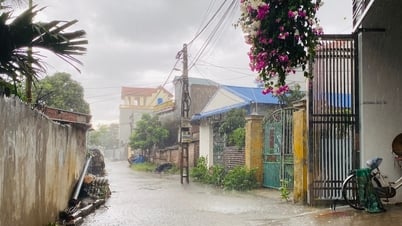


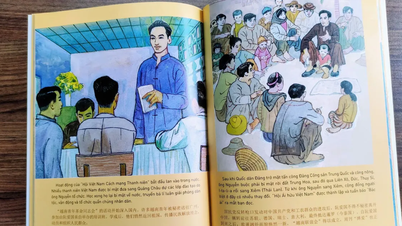






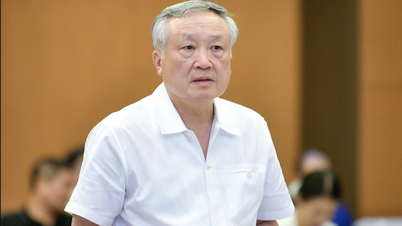




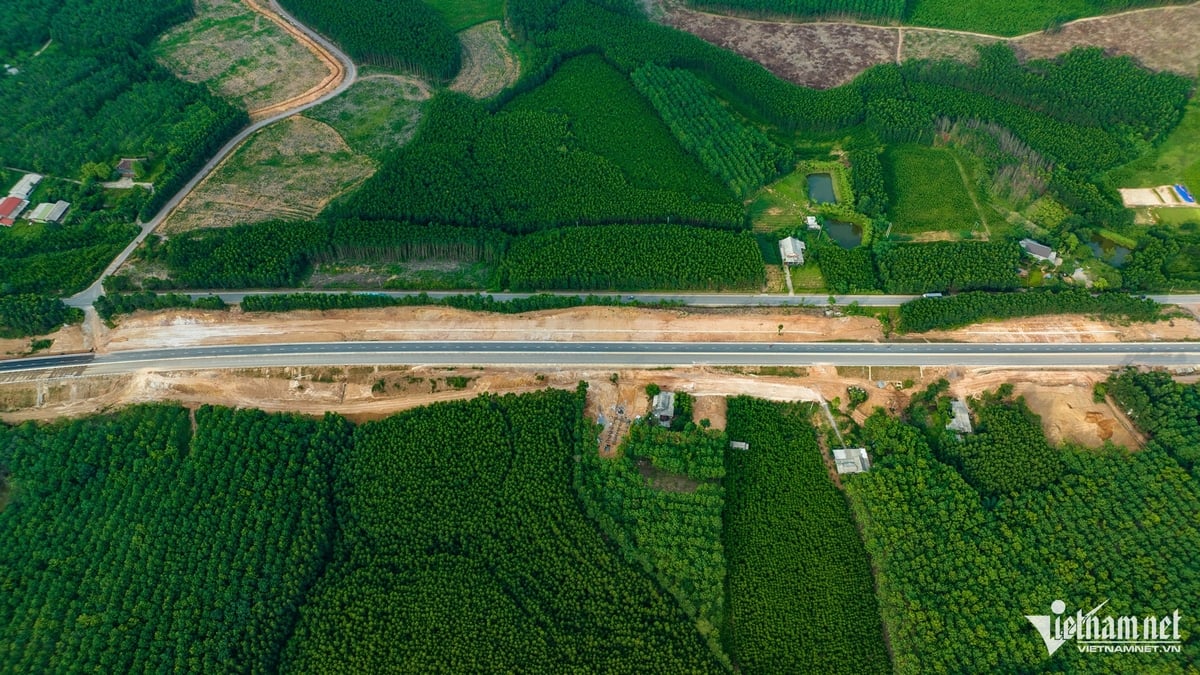


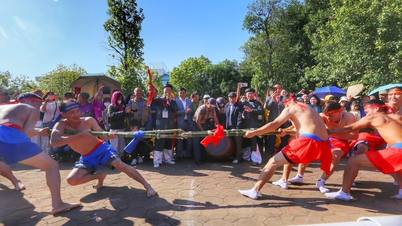
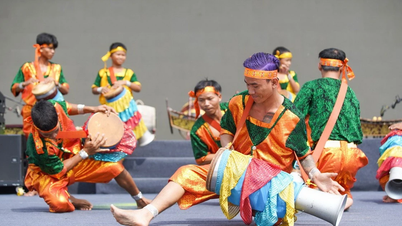


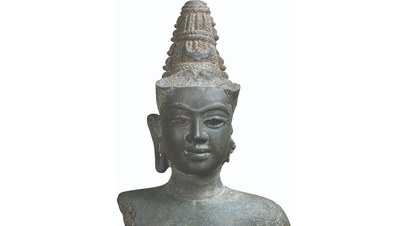




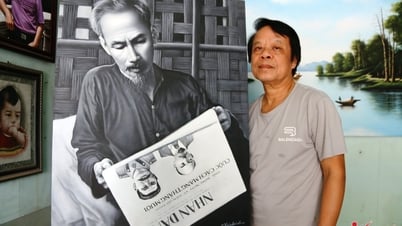

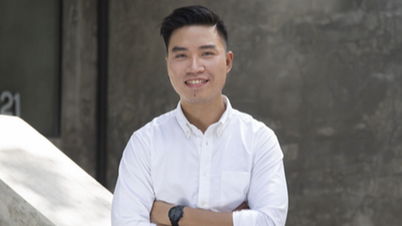


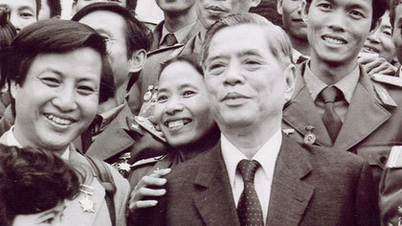





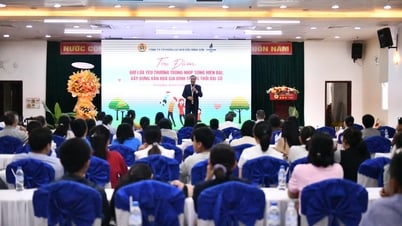





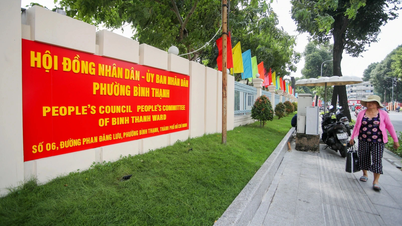





![[Infographic] Circular guiding the functions, tasks and powers of the provincial Department of Culture, Sports and Tourism and the commune-level Department of Culture and Social Affairs](https://vphoto.vietnam.vn/thumb/402x226/vietnam/resource/IMAGE/2025/6/29/877f24989bb946358f33a80e4a4f4ef5)








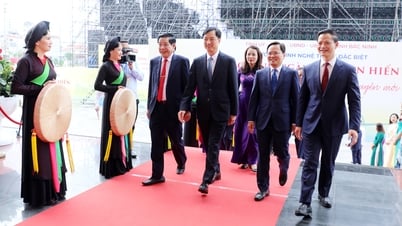

![[Updated news] Ceremony to announce the merger of provincial and communal administrative units in Thai Nguyen - Bac Kan](https://vphoto.vietnam.vn/thumb/402x226/vietnam/resource/IMAGE/2025/6/30/0de85cb56da843d897e30016b57b1412)















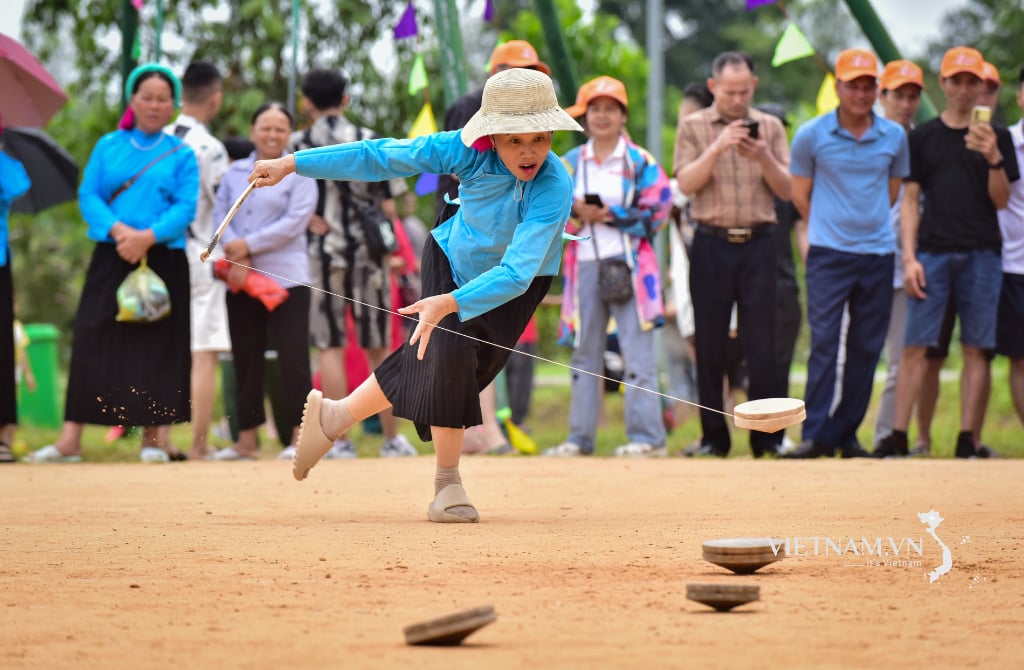

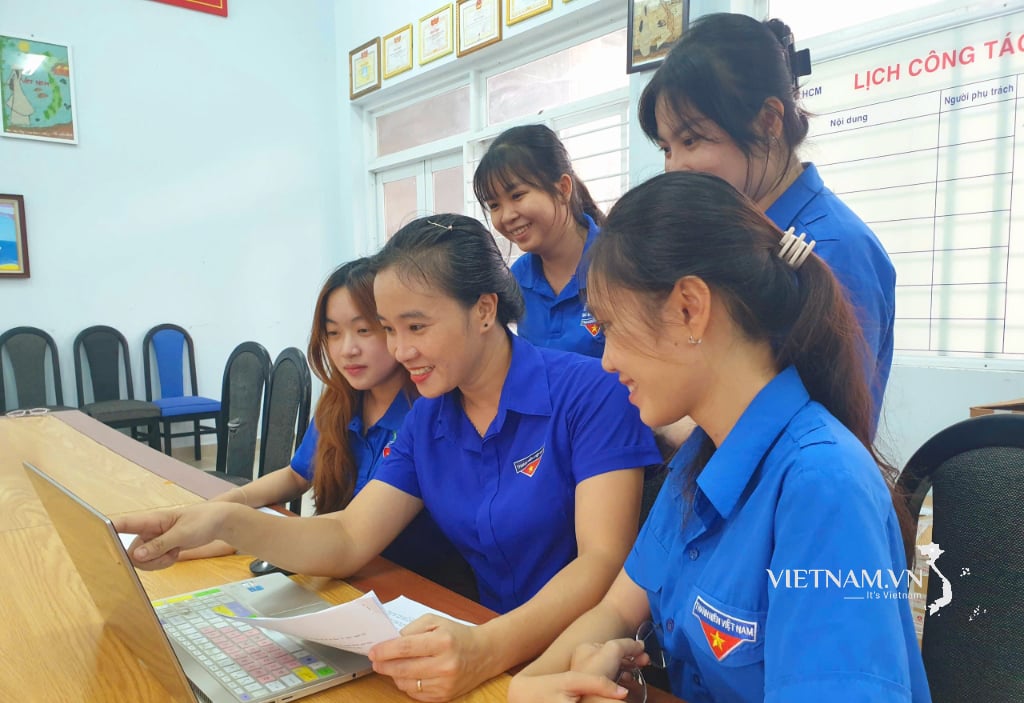
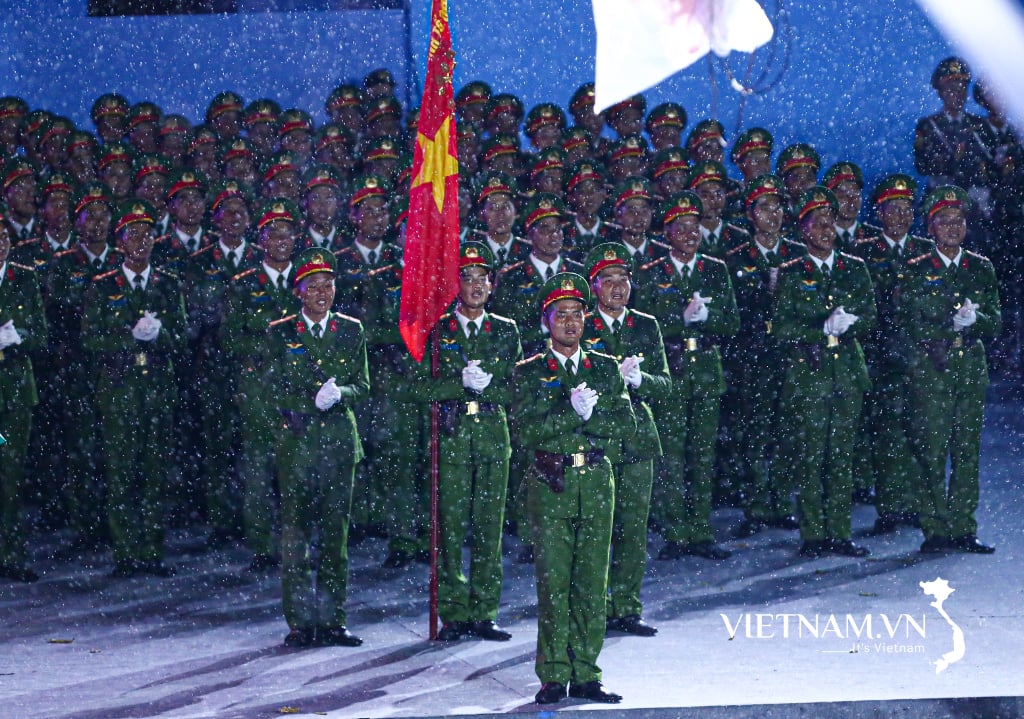
Comment (0)